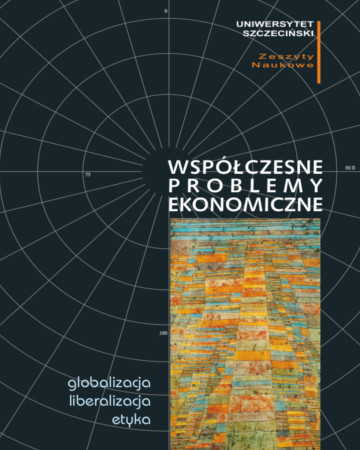
ISSN: 2081-9579
eISSN: 2353-2815
OAI
DOI: 10.18276/wpe.2017.14-05


Issue archive /
nr 14 (2017)
Comparative research of dominant leadership styles in large enterprises in the Republic of Croatia
| Authors: |
Ivona
Vrdoljak Raguz
University of Dubrovnik, Department of Economics and Business Economics, Croatia |
| Keywords: | dominant leadership style large enterprises the Republic of Croatia |
| Data publikacji całości: | 2017 |
| Page range: | 9 (79-87) |
| Klasyfikacja JEL: | M19 M20 |
Additional information
This paper is a part of the project under the title: Strategy of Corporation - present future (Search for possibilities of growth companies in the Republic of Croatia), Leader: Professor Ivan Mencer, Project funded: The University of Rijeka.
Abstract
The main goal of this paper is to present comparative analysis of dominant leadership styles in large Croatian enterprises. The research framework which examines leadership styles in large Croatian enterprises is based on the Likert analysis of organization and leadership styles. Survey research was conducted in 2008 and 2015. The result of the research reveals that the dominant leadership style in large Croatian enterprises regarding the enterprise size has not changed a lot in these seven years and that it is still between benevolent-authoritative and consultative leadership style. Details of the results, implications of the findings and conclusions are presented and discussed in this paper.
Download file
Article file
Bibliography
| 1. | Bass, B.M. (1990). Bass and Stogdill’s handbook of leadership: Theory, research and managerial applications. New York: Free Press. |
| 2. | Cohen, W.A. (1990). The art of a leader. Englewood Cliffs. New Jersey: Jossey-Bass. |
| 3. | Conger, J.A. (1992). Learning to lead. San Francisco: Jossey-Bass. |
| 4. | Donelly, J.H., Ivancevich, J.M., Gibson, J.L. (1985). Organizations: behavior, structure, processes, 5th ed. Plano, Texas: Business Publications Inc. |
| 5. | Hemphill, J.K., Coons, A.E. (1957). Development of the leader behavior description questionnaire. In: R.M. Stodgill, A.E. Coons (eds.). Leader behavior: Its description and measurement. Columbus. Ohio: Bureau of Business Research, Ohio State University. |
| 6. | Hersey, P., Blanchard, K. (1988). Management of organizational behavior. Englewood Cliffs, New Jersey: Prentice Hall. |
| 7. | Hollander, E.P. (1978). Leadership dynamics: A practical guide to effective relationships. New York: Free Press. |
| 8. | Katz, D., Kahn, R.L. (1978). Social psychology of organizations, 2nd ed. New York: John Wiley. |
| 9. | Kouzes, J.M., Posner, B.Z. (1995). The leadership challenge. San Francisco: Jossey-Bass. |
| 10. | Likert, R. (1961). New Patterns of Management. McGraw Hill, New York. |
| 11. | Rauch, C.F., Behling, O. (1984). Functionalism: Basis for an alternate approach to the study of leadership. In: J.G. Hunt, D.M. Hosking, C.A. Schriesheim, R. Stewart (eds). Leaders and managers: International perspectives on managerial behavior and leadership. New York: Pergamon Press. |
| 12. | Skansi, D. (2000). Relation of managerial efficiency and leadership styles – empirical study in Hrvatska elektroprivreda d.d., Management – Journal of Contemporary Management Issues, University of Split, Faculty of Economics, Split. |
| 13. | Stogdill, R.M. (1950). Leadership, membership and organization. Psychological Bulletin, 47 (1), 1–14. |
| 14. | Stogdill, R.M. (1974). Handbook of leadership: A survey of the literature. New York: Free Press. |
| 15. | Tannenbaum, R., Weschler, I.R., Massarik, F. (1961). Leadership and organization. New York: McGraw-Hill. |
| 16. | Zalenik, A. (1992). Managers and leaders: are they different? Harvard Business Review. March/April. |
| 17. | Vrdoljak Raguž, I. (2010). Top Level Manager’s Leadership Styles in Large Croatian Companies. Business Review, Cambridge, 14 (2), 154–160. |
| 18. | Yukl, G.A. (2002). Leadership in Organizations, Fifth Edition. Prentice Hall, Upper Saddle River, New York. |